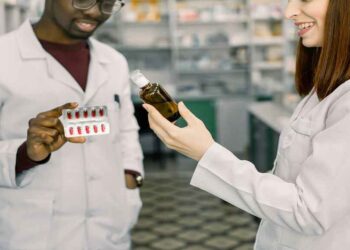Affibody AB, a clinical stage biopharmaceutical company, announced the initiation of its 52-week trial investigating the novel bispecific IL-17A inhibitor ABY-035 in patients with psoriatic arthritis (PsA).
“Initiating our PsA study is an important step in evaluating the best-in-class opportunity that ABY-035 represents in multiple autoimmune diseases”, said David Bejker, CEO of Affibody. “We have identified spondyloarthritis as a family of inflammatory rheumatic diseases, which includes PsA, with a high unmet medical need where we believe that patients could potentially be well served by ABY-035. Initiating this confirmatory Phase 2 study in PsA is the logical first step in this development, with more to come.”
The study is a one-year double-blind controlled trial in approximately 120 patients with active psoriatic arthritis which will be conducted in approximately 30 centers across Europe. The primary objective of the trial is to evaluate efficacy of different dose regimens of ABY-035 as compared to placebo.
“Based on the accumulated clinical data, including more than two years of exposure in subjects with moderate-to-severe psoriasis in the AFFIRM-35 phase II study, we believe that ABY-035 is a de-risked asset with a best in class potential and strong safety profile”, commented Fredrik Frejd, CSO of Affibody. “It is also very rewarding to initiate our first clinical study together with the Karolinska University Hospital and with the Center for Rheumatology, important drivers for our recent relocation to Karolinska Institutet Campus Solna”.
“Patients with spondyloarthritis have historically not had enough access to effective biological treatment options and as an active clinician I welcome the initiation of more clinical studies with potent molecules in this field.” said Per Larsson, Senior Rheumatologist at the Center for Rheumatology and researcher at Karolinska Institutet.
The announcement follows the encouraging clinical results in patients with moderate-to-severe psoriasis as well as the regional co-development collaboration with Inmagene announced earlier this year.
About the Phase 2 trial
The study is a multicenter, randomized, double-blind, placebo-controlled, dose-finding clinical trial in patients with active psoriatic arthritis to investigate efficacy, tolerability, safety, pharmacokinetics and immunogenicity of ABY-035. The study will be conducted in approximately 30 centers in Austria, Belgium, Czech Republic, Germany, Hungary, Poland, Spain, and Sweden. Approximately 129 patients are planned to be randomized (43 per treatment group) to have at least 123 patients (41 per treatment group) valid for evaluation ofthe primary endpoint.
About Spondyloarthritis and PsA
Spondyloarthritis (SpA) is a blanket term applied to the name for a family of inflammatory rheumatic diseases that cause arthritis. Common features of SpA include inflammation in the spine, pelvis, other joints, intestine, eyes, and heels. Diseases that fall under the SpA umbrella include axial spondyloarthritis (axSpA), psoriatic arthritis (PsA), reactive arthritis, the arthritis of inflammatory bowel disease (IBD), and undifferentiated spondyloarthritis. SpA is distinct from other inflammatory arthritides, particularly rheumatoid arthritis (RA) as it involves the sites where ligaments and tendons attach to bones called entheses.
Psoriatic arthritis (PsA) is a chronic, immune-mediated, inflammatory musculoskeletal disease associated with psoriasis, manifesting most commonly with peripheral arthritis, dactylitis, enthesitis, and spondylitis. In the majority of patients, the skin symptoms develop first, followed by the arthritis. PsA affects men and women equally and can start at any age. It occurs most often in adults between the ages of 45 and 55.
About ABY-035
ABY-035 is a novel bispecific agent, potently targeting both subunits of IL-17A as well as albumin. ABY-035 has been specifically designed to utilize the strengths of Affibody’s technology platform to create a very small protein drug (18 kDa, an eighth of the size of an antibody) with very high apparent affinity to IL-17A (KD ~300fM) and antibody-like half-life due to the strong (KD ~50pM) binding affinity to serum albumin.
Accumulated patient data from ~150 psoriasis patients, some of which have been dosed for more than two years, support a safe and efficacious product profile with best-in-class potential.



















